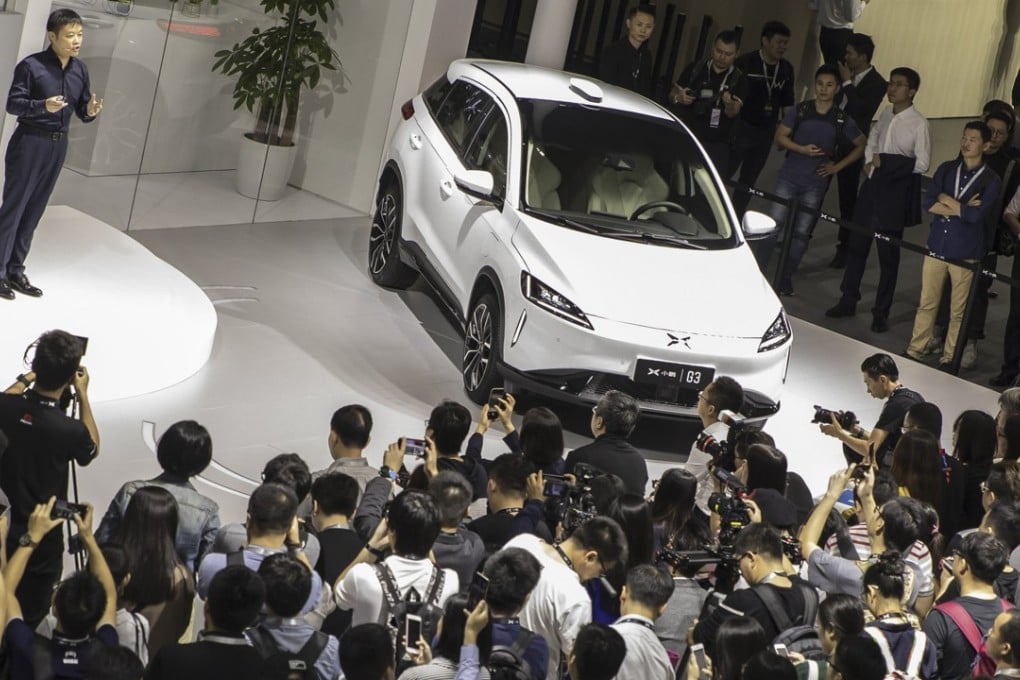Chinese electric car start-ups like Xpeng make a run for potential Tesla buyers as competition hots up
- China’s automobile market has seen a growing crowd of new domestic players in recent years taking on established foreign car makers

Chinese electric car start-ups are making a run for potential Tesla buyers in the country now that more of them have caught up with the Palo Alto-based giant – with cars ready for delivery and at a cheaper price.
Xpeng Motors, backed by Alibaba Group Holding, is the latest contender emerging from the pack, as the Guangzhou-based company handed keys to its first batch of mass buyers on Wednesday.
Standing on stage, He Xiaopeng, chairman and chief executive of his eponymous company, could not resist referencing his US rival when talking about the mileage range and auto parking functions of Xpeng’s cars.
“I drive Tesla cars, in fact I have four. But with certain features, Xpeng is even better,” he said at the launch event in Guangzhou on Wednesday. “You’ll love listening to music while in car like you never did before,” said He, claiming Xpeng’s in-car environment was slightly quieter than in Tesla models.
The G3 sports utility vehicle, the company’s first mass-produced model, has a floor price of 227,800 yuan (US$33,150) before subsidies, compared to the Tesla Model 3’s price tag of 782,900 yuan after tariffs. After subsidies, the basic G3 version costs only 135,800 yuan.
China’s automobile market has seen a growing crowd of new players in recent years. Venturing into ground previously dominated by foreign car makers such as GM, Toyota Motor and Volkswagen, the Chinese start-ups are investing billions of dollars in advanced technologies ranging from autonomous driving to bespoke smart features like voice control, with the aim of taking on new EV challengers such as Tesla, which is building a factory in Shanghai, its first factory outside the US.